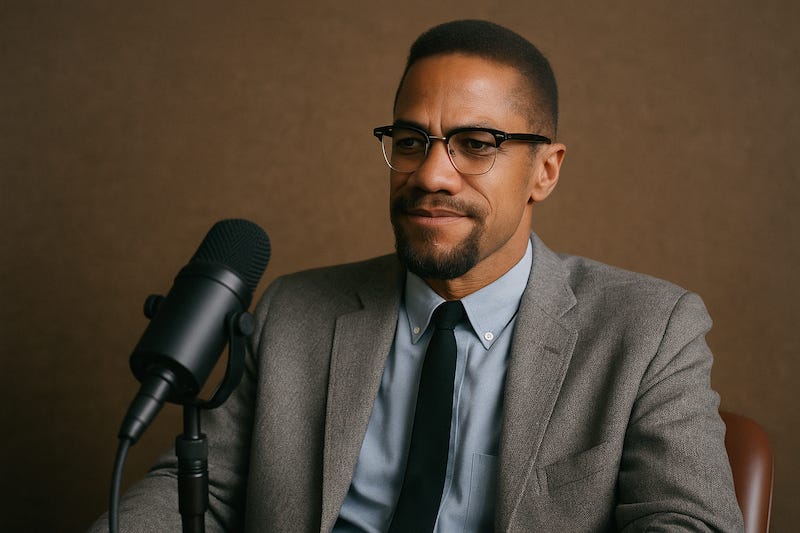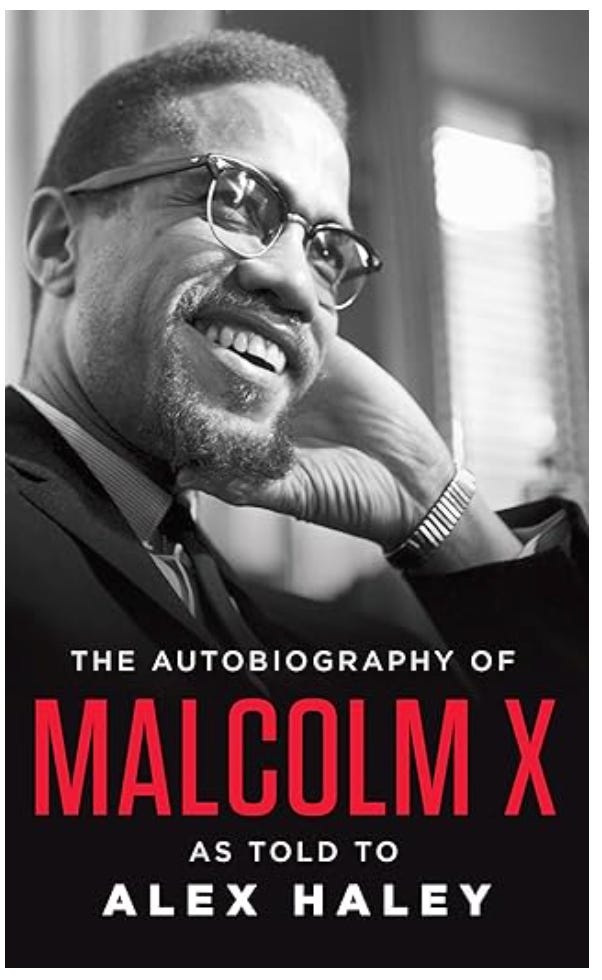Malcolm X – On Justice, Identity, and the Unfinished Struggle
Recorded via ChronoTranscriptor™ 3.2 — June 19, 2025
[Host Introduction]
Today on ChronoTalks, we speak with Malcolm X—minister, revolutionary, and one of the most influential and misunderstood figures in 20th-century American history.
Born Malcolm Little in 1925, he transformed from a street hustler to a vocal leader of the Nation of Islam, then evolved into a more global human rights advocate before his assassination in 1965 at age 39.
Through the ChronoTranscriptor™, we invite him into 2025 to reflect on justice, change, and how far we’ve come—or haven’t.
[Interview Begins]
Host: Mr. X, thank you for joining us. It’s an honor.
Malcolm X: The honor depends on what you do with this conversation. If people hear it and act—then we’ve done something. Otherwise, it's just noise.
Host: Let’s begin with your legacy. How do you feel people understand—or misunderstand—you today?
Malcolm X: Many people still see me as angry. That’s fine. Anger is an honest response to injustice. But anger was only the beginning. I was angry because I loved Black people. I wanted us to live—not just survive. To grow, build, think, question.
They quote “by any means necessary” but skip the rest. I wasn’t just talking about violence. I was talking about dignity—by any means.
Host: In the 1960s, you were often contrasted with Dr. Martin Luther King Jr. How do you view that relationship today?
Malcolm X: That contrast was exaggerated—by the press, by the government, even by well-meaning folks. Dr. King and I were walking different paths toward the same mountain. He believed in integration through love. I believed in defense through strength. But toward the end of my life, we were closer than people realize.
We both knew the system wasn’t broken—it was built that way. The question was: How do you wake people up to that truth?
Host: If you could speak to young Black leaders today, what would you say?
Malcolm X: Don’t wait for permission. Study your history. Control your image. Own your voice. And don’t mistake token victories for justice.
You’ve got access to more information than any generation before you. Use it—but don’t drown in it. The struggle isn’t on your screen. It’s on your block, in your school, at your job. Organize there.
Host: How do you feel about today’s conversations around race, equity, and social justice?
Malcolm X: There’s progress. But also performance. Justice is trending now—but trends fade. I’m watching people hashtag their way through history. I want to see policy. Power. Ownership.
I said in my time, “You can't have capitalism without racism.” Has that changed? Or has it just rebranded?
Host: You underwent a major transformation after your trip to Mecca. What did you learn?
Malcolm X: That the struggle was bigger than America. I saw Muslims of every race worshiping as one. That shattered my limited view.
I learned that oppression isn’t always about skin—it’s about structure. About who holds the whip, and who is told to thank them for it.
That trip didn’t make me softer. It made me wider. My fight wasn’t just for Black people in Harlem—it was for people everywhere denied their humanity.
Host: What do you want to be remembered for?
Malcolm X: For telling the truth—even when it made people uncomfortable. For evolving when I saw a better path. And for loving my people with everything I had.
Don’t remember me as perfect. Remember me as real.
[Closing Remarks]
Host: Mr. X, thank you for your time, your clarity, and your courage. The conversation continues.
Malcolm X: Make sure it does.
Subscribe to ChronoTalks to hear more voices from the other side of time.
In the searing pages of this modern classic, first published in 1965, Malcolm X—Muslim leader, fiery orator, and outspoken critic of racial integration—recounts the extraordinary story of his life and the rise of the Black Muslim movement. Told to acclaimed writer and journalist Alex Haley, this landmark autobiography emerged from nearly two years of intimate interviews, offering an unflinching portrait of one of the most electrifying and controversial figures of the 20th century.
Born Malcolm Little in Lansing, Michigan, he was shaped by poverty, systemic racism, and personal tragedy. After drifting into a life of petty crime, he was imprisoned—a turning point that introduced him to the teachings of Elijah Muhammad and the Nation of Islam. Reborn as Malcolm X, he devoted himself with unmatched intensity to the cause, rising to national prominence as the movement’s most passionate and provocative spokesman. But when his moral compass led him to break with Elijah Muhammad, he founded the Organization of Afro-American Unity and began advocating a broader vision of Black empowerment, pride, and global solidarity.
The Autobiography of Malcolm X endures as the definitive record of a man whose legacy remains unfinished but whose message continues to resonate. His powerful critique of the American Dream and the institutional racism that stifles it for millions offers deep, timeless insight into issues that remain as pressing today as they were then. More information…




